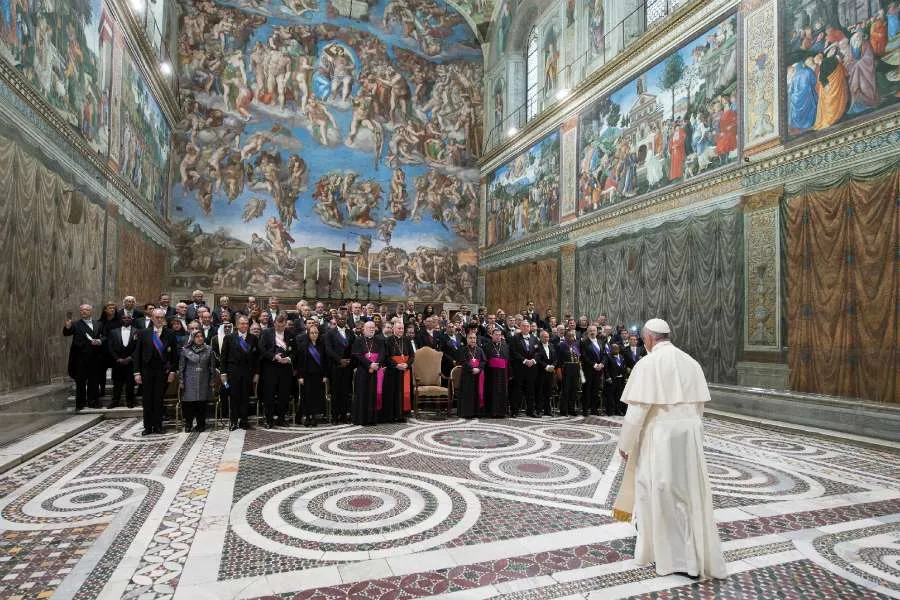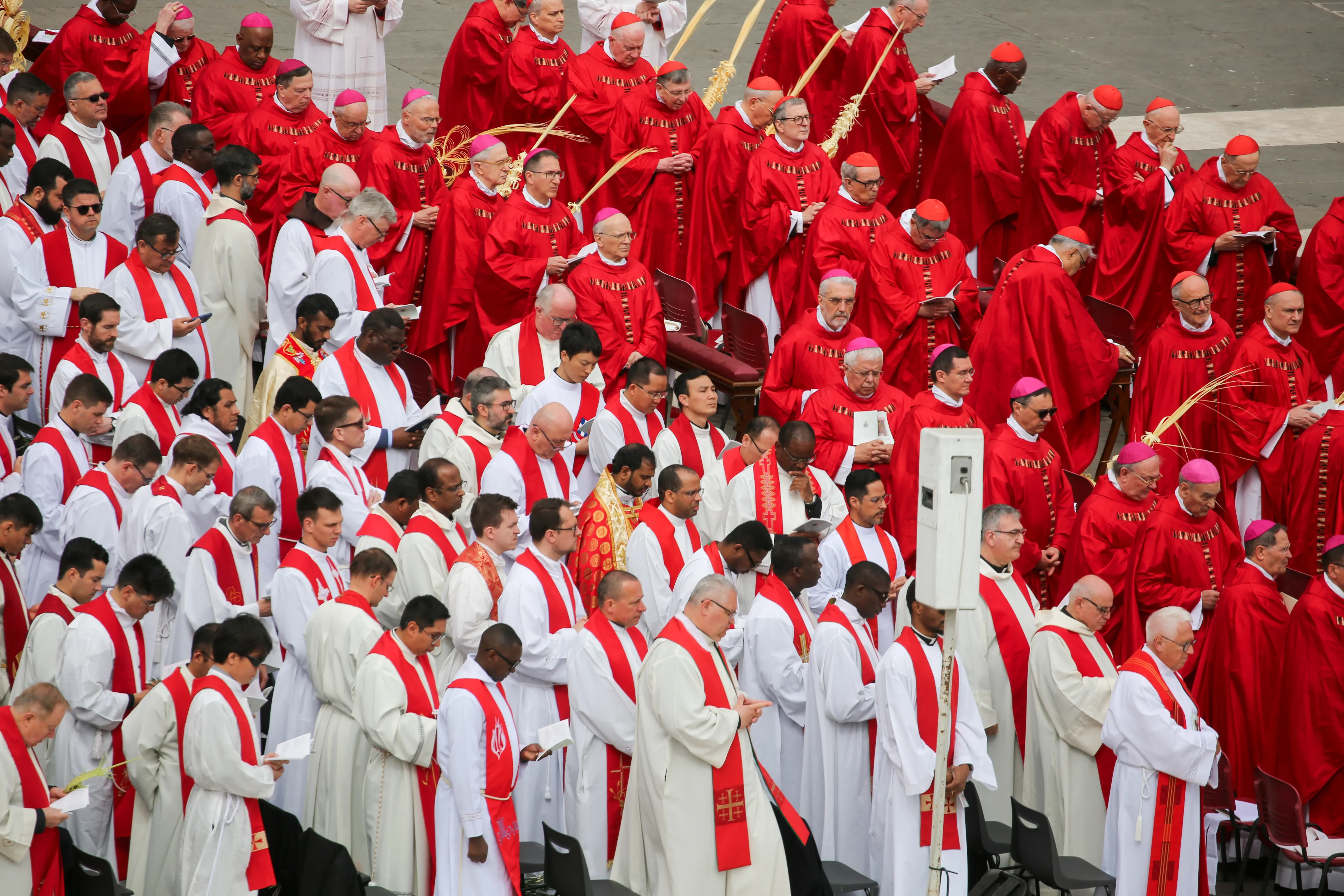The pope called for a more steadfast engagement of the international community in the Middle East, particularly in rebuilding war-torn Syria. He also decried the world’s indifference toward “the most serious humanitarian crisis in recent history” in Yemen.
He urged the international community to support African countries to “eliminate the scourge of terrorism that is causing more and more bloodshed in whole parts of Africa.”
“It is painful to witness, particularly in Burkina Faso, Mali, Niger and Nigeria, continuing episodes of violence against innocent people, including many Christians persecuted and killed for their fidelity to the Gospel,” the pope said.
The pope said he hopes the new year will also bring a consistent international response to the problems facing internally displaced persons, who do not always receive the protection they deserve.
Looking ahead to 2020, Pope Francis said the upcoming 75th anniversary of the founding of the United Nations provides the opportunity to reform the multilateral diplomatic system, beginning with the UN, to make it more effective in the present geopolitical context.
“Rights are intrinsically grounded in human nature itself. Whenever the lexicon of international organizations loses a clear objective anchoring, one risks fostering estrangement rather than rapprochement between the members of the international community, with the consequent crisis of the multilateral system, which is now sadly evident to all,” he said.
Pope Francis said that the UN climate change conference in Madrid last month raised “serious concern about the will of the international community to confront with wisdom and effectiveness the phenomenon of global warming.”
He said the issue of climate change should not be “reduced to an elitist concern,” adding that the response of international politics to climate change has been “very weak.”
The pope stressed the need for education of young people to “form mature individuals capable of overcoming division and antagonism, and to restore the fabric of relationships for the sake of a more fraternal humanity” in many societies where solidarity is lacking.
“There is, in fact, a tendency, in many parts of the world, to be self-absorbed, to defend acquired rights and privileges, and to view the world within a narrow horizon that treats the elderly with indifference and no longer welcomes the newborn. The general aging of the world population, especially in the West, is a sad and emblematic example of this,” Francis said.








